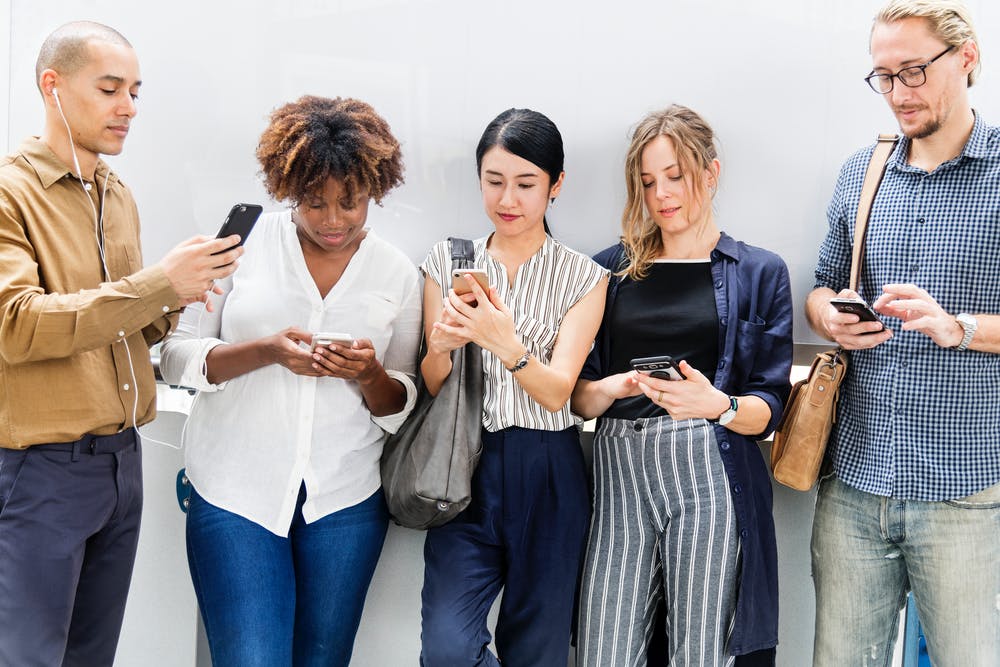Today is Suicide Prevention Day which led to me wondering that in a time when we are never really alone, are we feeling even more lonely than ever before?
We have a million ways to stay in touch now from social networks like Facebook to messaging apps like Whatsapp, all synced to a device that you carry on you at all times. Most of the day you’re likely to be engaged in some kind of conversation. But are we swapping these virtual conversations for real face-to-face communication? And is it an equal trade?
There was a touching story in a British newspaper about an elderly couple who called the emergency services because they were feeling lonely. The police officers who responded, anticipated that they needed medical attention but in fact all they needed was someone to talk to. The two officers obliged and sat down to a cup of tea and when they departed, left behind two happy, elderly people who will certainly never forget the day the police called in for tea.
One can appreciate elderly or sick people feeling lonely but what about the “epidemic of loneliness” among people in their late 20s that I have been reading about recently? In the UK, apparently 18-34 year olds are more likely to feel depressed because of loneliness than people aged over 55. They should in theory, have many interests in their lives but in practice, loneliness can affect many young people and this can lead to increased stress, under-performance, depression and anxiety.
Telephone helplines can be a source of support and I am sure that the Samaritans Crisis Helpline would say that many of its callers are not necessarily suicidal but are “just lonely”. I remember when I was a Samaritan volunteer some years ago, our calls included many people who solely wanted someone to talk to and who would unconditionally listen to them without being judgemental. I suppose of course, that the elderly couple who phoned the emergency services could possibly have learned to use Facebook to keep in contact with others — but social networks cannot replace real-life, face-to-face relationships.
There is also the fact that becoming over-reliant on social media can exacerbate feelings of loneliness in many people of any age. The chances are that people who upload posts to Facebook are sharing news of having a new baby, celebrating a birthday or an educational achievement, and posting pictures of a new car or holiday albums. These are some of the typical ‘chatter’ you may read or see when you are surfing the web. However, sometimes being a vicarious visitor in someone else’s life may leave you with feelings of jealousy or dissatisfaction because it often appears that everyone, apart from you, is having a good time. The point is that long-distance relationships via the web are often much less satisfying because they lack emotion.
An ‘emoji’ is inadequate to tell someone you love them… or hate them. For that, you need to see and hear or possibly touch. Most people would not buy a coat over the internet because they cannot feel or touch the material to see what it is made. It’s the same with relationships.
You need to feel their presence and energy — you cannot achieve that electronically even with a fully charged battery and a retina display with 5.6 million pixels!
Social networks can certainly appeal to our vanity and play to our vulnerability, plus we get instant gratification when someone likes our Facebook updates, retweets our post or reposts a picture from Instagram. We can be seduced into thinking that if we receive enough ‘likes’ on our Facebook page this will validate who we are and how the world sees us.
In my opinion however, nothing can replace face-to-face conversations where we cannot hide behind our screens. Socialising online is good for when we do not have the time to see someone in person or to fill-in those moments when you want to speak to somebody without having to get dressed or do your makeup. But be in no doubt that the time we spend socialising online often discourages one–to-one conversations and can lower our confidence levels and undermine our ability to converse with real people with real problems in real time.
If you think that you may be too reliant on apps, networks and technology as a way to satisfy your social life, try using your phone to call up a friend and schedule an actual real-life meeting. Do something you both enjoy in the outdoors and away from your phones. In fact, turn it off altogether and appreciate the company that you keep. I promise you will feel more valued, appreciated and happier as a result.
However, If you feel as if your communication skills could use some work, there are customised training programmes which can help you to develop and utilise active listening to gain a deeper understanding of people and situations, allowing you to boost morale and improve the performance of your teams.
A smile can make somebody’s day. An emoji can’t!




